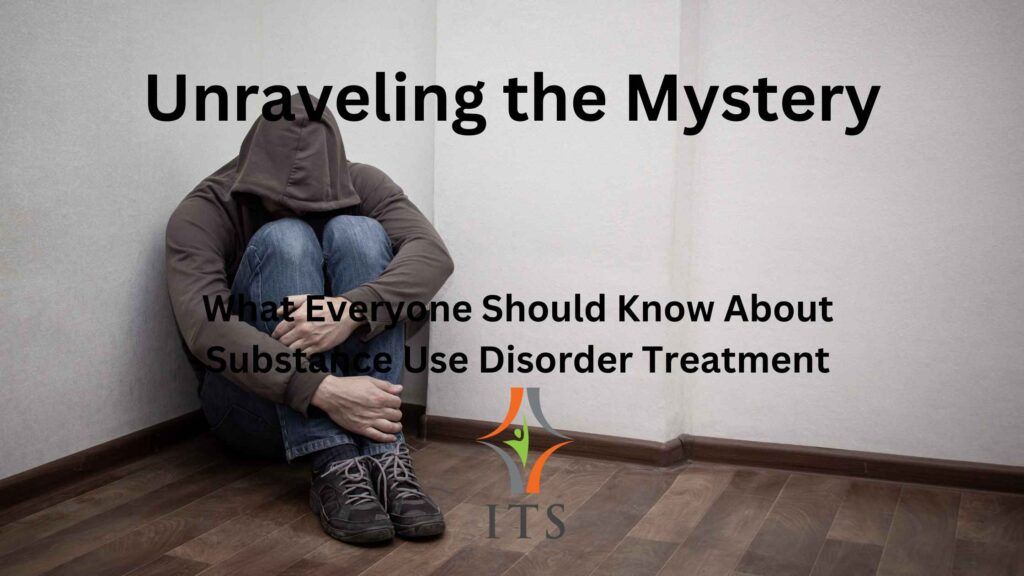Substance use disorder (SUD) is a complex condition that affects millions of individuals and families across the globe. Despite its prevalence, there remains a cloud of mystery and misconceptions surrounding substance use disorder treatment. This comprehensive guide aims to shed light on what everyone should know about the paths to recovery, the types of treatments available, and the crucial role of community and support in overcoming addiction.

Understanding Substance Use Disorder
Before diving into the intricacies of treatment, it’s essential to understand what SUD entails. Substance use disorder is a medical condition characterized by an uncontrollable use of substances despite harmful consequences. It can involve alcohol, prescription medication, and illegal drugs. The path to SUD varies greatly among individuals, influenced by genetics, environment, and personal experiences.
The Stigma Surrounding SUD
One of the biggest challenges in addressing SUD is the stigma attached to it. Misunderstandings and societal judgments can deter individuals from seeking the help they need. Combatting this stigma begins with education and fostering a more compassionate understanding of SUD as a treatable medical condition.
The Cornerstones of Substance Use Disorder Treatment
Substance use disorder treatment is not one-size-fits-all. Effective treatment plans are tailored to the individual, taking into account the severity of the disorder, the substances used, and the person’s specific needs and circumstances.
Medical Detoxification
The first step in many treatment programs is detoxification, supervised by medical professionals to safely manage withdrawal symptoms. While necessary, detox alone is rarely sufficient for long-term recovery; it’s the gateway to more comprehensive SUD treatment.
Behavioral Therapies
Behavioral therapies are a critical component of SUD treatment, helping individuals change their substance use behaviors, develop healthier life skills, and persist with other forms of treatment. These may include:
- Cognitive-Behavioral Therapy (CBT): CBT teaches individuals to recognize and correct problematic behaviors through skill-building sessions, aiming to prevent relapse.
- Motivational Interviewing: This method resolves ambivalence toward treatment and encourages a commitment to change.
- Family Therapy: Incorporating families into the treatment process can repair and strengthen family dynamics, supporting recovery.
Medication-Assisted Treatment (MAT)
MAT combines medications with counseling and behavioral therapies to treat substance use disorders. It’s particularly effective for opioid, alcohol, and nicotine addiction, helping to normalize brain chemistry, block the euphoric effects of alcohol and opioids, relieve cravings, and stabilize body functions.
The Role of Support Groups in Recovery
Support groups like Alcoholics Anonymous (AA) or Narcotics Anonymous (NA) provide a community of individuals who share similar experiences and struggles with substance use. These groups offer a platform for mutual support, sharing coping strategies, and reinforcing the commitment to sobriety.
Continuous Care and Relapse Prevention
Recovery from SUD is a lifelong process that extends beyond initial treatment. Continuous care, including ongoing therapy, support group participation, and sometimes continued MAT, plays a crucial role in sustaining sobriety and preventing relapse.
Overcoming Barriers to Treatment
A multitude of barriers can stand in the way of seeking treatment, including fear of stigma, financial constraints, and lack of awareness about available resources. Overcoming these obstacles starts with increasing public education on SUD, expanding access to treatment options, and fostering supportive communities that encourage recovery.
The Importance of Early Intervention
Early intervention can significantly impact the success of substance use disorder treatment. Recognizing the signs of SUD in oneself or loved ones and seeking help promptly can prevent the condition from worsening, making the road to recovery smoother.
The Future of Substance Use Disorder Treatment
Advancements in medical research continue to improve our understanding of SUD and how to treat it effectively. Emerging therapies, such as digital interventions and personalized medicine, hold promise for enhancing treatment outcomes. However, the foundation of successful recovery remains a comprehensive, individualized treatment plan supported by a caring community.
Breaking the Cycle of Addiction
Efforts to break the cycle of addiction must address the broader societal factors contributing to SUD, including poverty, trauma, and inadequate mental health services. By promoting healthier environments and improving access to care, we can reduce the incidence of SUD and support more individuals in their recovery journey.
Conclusion
Unraveling the mystery surrounding substance use disorder treatment reveals a hopeful message: recovery is possible. With the right combination of medical treatment, therapy, support, and community involvement, individuals struggling with SUD can regain control over their lives. It’s time to dispel the myths and stigma associated with addiction, approaching SUD with the empathy, understanding, and urgency it deserves. If you or someone you love is grappling with substance use, know that help is available, and the path to recovery starts with taking that first courageous step towards treatment.
